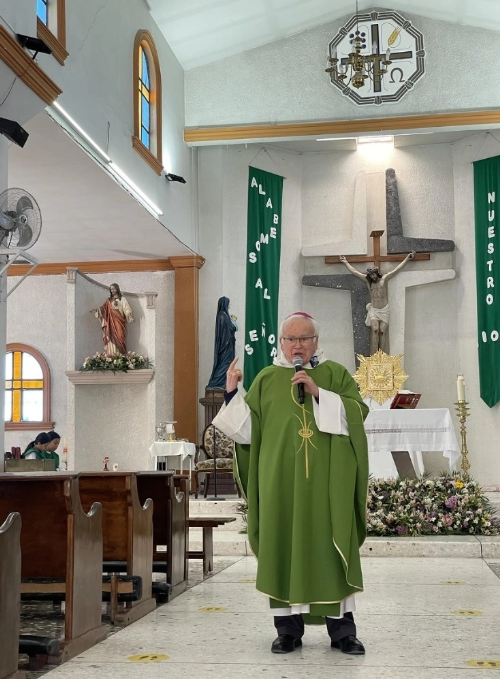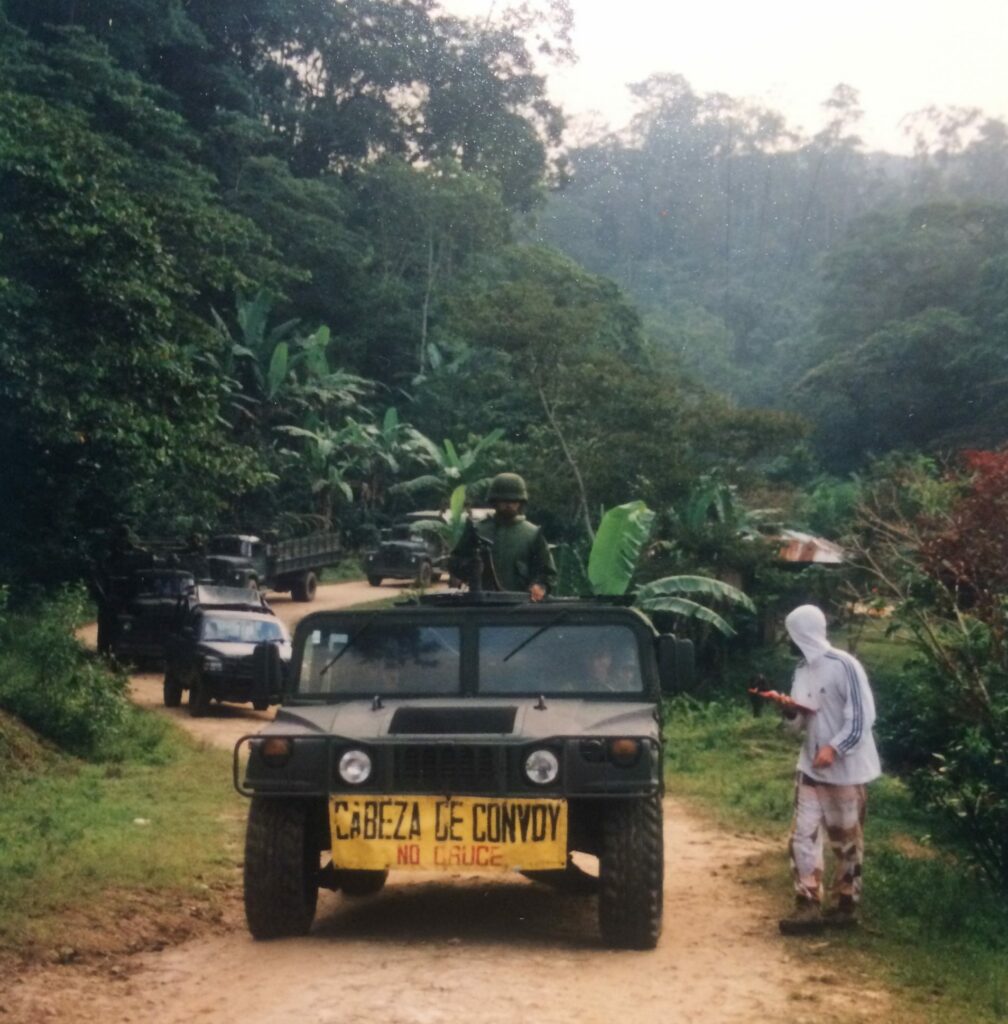Elio Henríquez

San Cristóbal de Las Casas, Chis. The Fray Bartolomé de Las Casas Human Rights Center (Frayba) affirmed that the presence of the Civil Observation Brigades (Brico), which February 28th, celebrated 29 years since they were created, continue to be a mechanism that from below has achieved a counterweight to the violence exercised against the peoples who resist in Chiapas, because “they break the siege of disinformation, document first hand and dissuade aggressions.”
In a communiqué he said that “since its creation more than 11 thousand people of 73 nationalities have participated and Frayba has been supported by 760 solidarity collectives that promoted the project and prepared the observers; 146 camps were installed in communities of Chiapas with a duration ranging from one year to more than two decades, as is the case of the one currently in the community of Acteal,” municipality of Chenalhó.
The organization presided over by the bishop emeritus of Saltillo, Coahuila, Raúl Vera López, pointed out that in the last year and a half, “128 very diverse brigadistas have participated; as in previous years there is more participation of women and every year more trans or non-binary people are added: the ages range from 20 to 69 years old.”
He maintained that “the spiral of violence that began with paramilitarism has now deepened and become more complex. The armed groups have diversified and their categorization is becoming increasingly difficult to define due to the opacity in which they operate. In the face of this, the State continues to be omissive, if not a promoter or a party to such violence.”
In this context, he added, “three camps are maintained: Acteal, Casa de la Memoria y la Esperanza, headquarters of the organization Sociedad Civil Las Abejas, located in Chenalhó, in the highlands of Chiapas; Casa Betania Santa Martha, municipality of Salto de Agua, and 4 de Agosto, installed in the community of Agua Clara, Palenque, both in the northern region of the state. In them, the Brico’s maintain the observation and documentation of the human rights situation in the region.”

Frayba recalled that “after the “Ya Basta!” of January 1, 1994, the State’s reaction was military and paramilitary violence. Since 1995, the Secretary of National Defense implemented the Chiapas 94 Campaign Plan, whose objective was to put an end to the struggle of the Zapatista Army of National Liberation (EZLN), creating paramilitaries.”
He said that on February 28, 1995, the bishop of the diocese of San Cristobal, Samuel Ruiz Garcia, “made an urgent call for national and international solidarity to stop the war against the Zapatista communities. His appeal gave rise to the Civil Peace Camps and later, in June 1998, the Brico was created, which 29 years later remains as a sign of solidarity from the world towards Chiapas.”
He expressed that “the work carried out from the Brico project is an inherent part of the action of defense and integral promotion of human rights and of the native peoples,” for which he made a call to national and international solidarity “to continue putting their eyes and ears on the serious crisis of violence and human rights that is being experienced in Chiapas and to continue strengthening the struggle of the peoples for life with the same respect that throughout 29 years has been preserved. Today more than ever your solidarity sustains us.”
Original article published in La Jornada on February 28th, 2024.
Translation by Schools for Chiapas.
